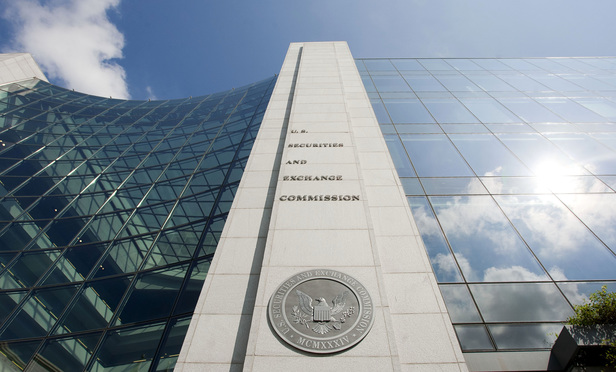

NOT FOR REPRINT
SEC Releases FAQ on 12b-1 Fee Initiative
News May 01, 2018 at 04:43 PM
Share & Print

NOT FOR REPRINT
© 2025 ALM Global, LLC, All Rights Reserved. Request academic re-use from www.copyright.com. All other uses, submit a request to [email protected]. For more information visit Asset & Logo Licensing.


